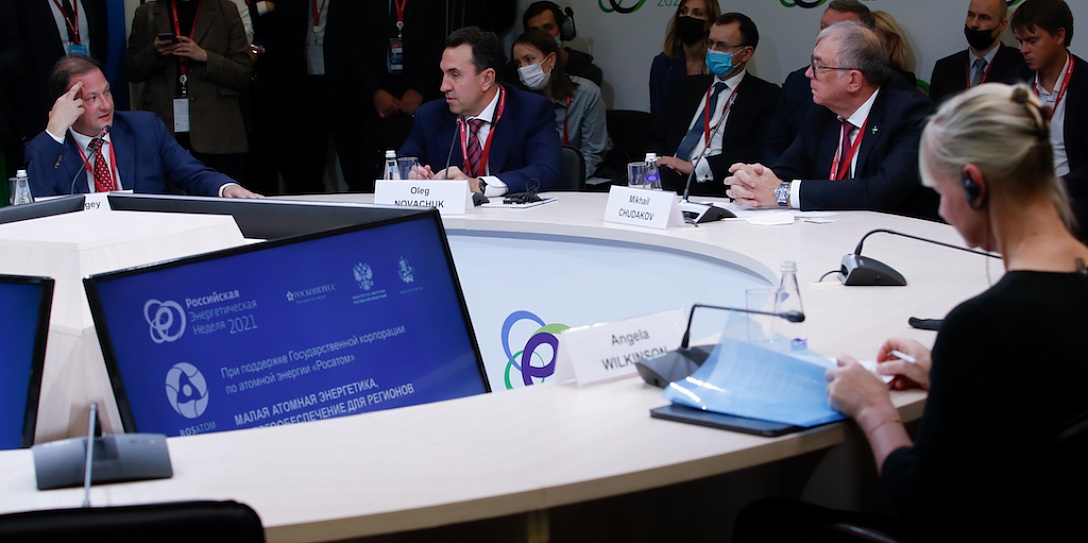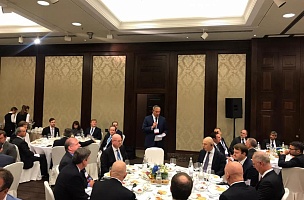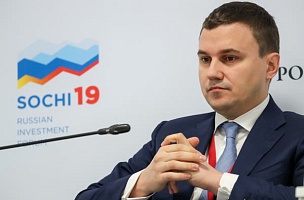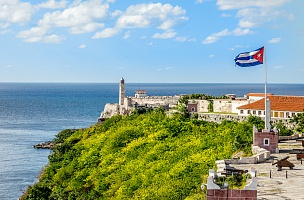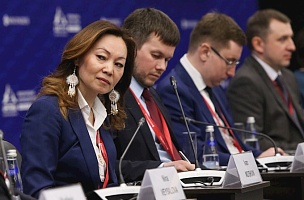KEY CONCLUSIONS
Small modular reactors could solve the issue of supplying energy to remote regions, including the Arctic
“There are remote regions beyond the reach of the energy system. These are areas where commercial activity could take place. But does the choice have to be in favour of sun and wind power, and not small modular reactors? That is the big question,” Evgeniy Grabchak, Deputy Minister of Energy of the Russian Federation.
“Almost 64% of the territory of Yakutia is not connected to a centralized electrical grid. Large settlements could decide to construct combined diesel stations with solar and wind power. However, if we want to implement major industrial projects here, in the Arctic, then of course, small modular reactors are the safer, more cost-efficient, and profitable option,” Aysen Nikolaev, Head of Sakha Republic (Yakutia).
“We are going to build a low-capacity nuclear power plant in Yakutia’s Ust-Yansksky district. The objective is to support production at the Kyuchus gold deposit – one of the largest in the country. The project demonstrates the symbiosis that occurs when a large region is developed both from an industrial and social point of view. It is my belief that this will be the first step in overcoming the energy shortage – at least in the Yakutian Arctic,” Aysen Nikolaev, Head of Sakha Republic (Yakutia).
“It is my belief that it is simply impossible to develop isolated and northern regions without floating power plants. The shipping season is a mere 3–4 months long there, so constructing any kind of substantial structure will be virtually impossible,” Oleg Novachuk, Chairman of the Board of Directors, Baimskaya mining company.
Nuclear power plants are capable of providing a reliable – and economical – energy supply
“There is a unit of measurement known as energy return on investment, which is based on the energy used to obtain a particular energy resource. For a nuclear power plant, the return is 75–80 times more than consumption, because it has a long operating life. Solar panels, on the other hand, only produce around double what they consume,” Mikhail Chudakov, Deputy Director General, Head of the Department of Nuclear Energy, International Atomic Energy Agency (IAEA).
“The recent events on the gas market serve to demonstrate that moving towards nuclear energy is absolutely the right thing to do. We need stability and a long-term guarantee of stable prices for electric power. Our project will have an electricity supply for more than 40 – potentially 60 – years, with the price remaining stable,” Oleg Novachuk, Chairman of the Board of Directors, Baimskaya mining company.
“No wind or solar farm can guarantee stable production. And we can see this today. The leap in the cost of gas is the result of those wind farms standing idle. There has not been enough wind. We have nothing against them, but the system needs to be upheld by nuclear energy, where fuel accounts for 8% of the cost per kilowatt-hour. To compare, in carbon-based generation, it is more than 50%,” Mikhail Chudakov, Deputy Director General, Head of the Department of Nuclear Energy, International Atomic Energy Agency (IAEA).
PROBLEMS
Nuclear energy remains relatively unpopular, which is having a negative impact on the environment
“Nuclear generation continues to account for about 10% of the energy mix. In order to halt global warming, we need to get this figure up to at least 20–25%. But this is not happening. We are already losing, because people don’t believe in nuclear energy and are not looking to develop it,” Mikhail Chudakov, Deputy Director General, Head of the Department of Nuclear Energy, International Atomic Energy Agency (IAEA).
“In 2020, 45% of Germany’s energy came from renewable, green sources. In France, this figure is a mere 25%. And yet in Germany, nuclear power accounts for just 11% of the national energy mix, while in France it is 70%. However, in 2020, Germany’s carbon dioxide emissions from burning fuel amounted to 617 million tonnes, while in France it was 272 million tonnes. There it is – the answer to the question,” Alexey Likhachev, Director General, ROSATOM State Atomic Energy Corporation.
SOLUTIONS
International mechanisms to help implement nuclear power projects need to be developed
“Globally, nuclear power needs to grow from the 10% it is at currently, because this will be beneficial to humanity. The main thing is that the development of small modular reactors is not hindered by political decisions, by pressure from certain countries. It is clear that nothing good comes from politicizing the energy market,” Alexey Likhachev, Director General, ROSATOM State Atomic Energy Corporation.
“Energy consumption in Africa will grow by 2025; however, it will remain the same per capita. The only difference is that there will be 1.4 billion people. That means that there will be the same poverty as before, people will go to more prosperous countries, and Europe will simply be inundated. It is in the interests of Europe and other nations to help developing countries. And in terms of the environment, nuclear power is the only option when it comes to solving issues related to energy development,” Mikhail Chudakov, Deputy Director General, Head of the Department of Nuclear Energy, International Atomic Energy Agency (IAEA).
“Everything will depend on our agreements with a specific country. We can transfer a station to a country, which will then assume responsibility for operating and running it. Alternatively, we can operate it ourselves, in which case we assume all the responsibility. Another option is for it to be a joint venture in cooperation with local businesses, which then operates according to the laws of the country where it is based,” Alexey Likhachev, Director General, ROSATOM State Atomic Energy Corporation.
For more information, visit the Roscongress Foundation’s Information and Analytical System at roscongress.org/en.


